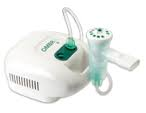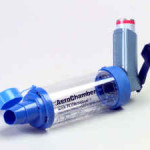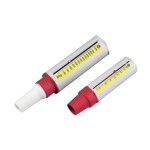 Take the time to improve your quality of life while living with asthma.
Take the time to improve your quality of life while living with asthma.
Increasingly, more people suffer from asthma or chronic obstructive pumonary disease (COPD). If you have been diagnosed with asthma or COPD by your doctor, you likely have been given both a maintenance plan and a plan for when your symptoms become worse during exacerbations. There are different types of asthma, as well as different components of COPD, with different triggers. Depending on what triggers your asthma to worsen, you may have been given advice by your doctor to avoid certain triggers, use specific equipment and medications to minimize your asthma symptoms, and improve your breathing.
Quality Respiratory Care has a full compliment of experienced Respiratory Therapists to assist you with your asthma or COPD. We have the equipment to ensure your medication gets to the right place in your lungs, the equipment to minimize your exposure to triggers identified by your doctor, and monitoring devices prescribed by your doctor. Our staff will ensure you are fully informed of the use, maintenance, and safety precautions with any asthma related equipment prescribed, or advised by your doctor.
Well controlled, asthma should not inhibit most patients with this disease. You should be able to live your life to its fullest with a proper plan to minimize your asthma symptoms, and quickly deal with any exacerbations or worsening of your symptoms. Many COPD patients can improve their quality of living with just a few minor changes in their medication delivery, activity, and preventitive measures.
Medication Delivery

 A number of medications exist today to treat asthma or COPD. These medications include short acting bronchodilators, long acting bronchodilators, inhaled cortico-steroids, systemic cortico-steroids, combination medications with broncho-dilators and steroids, as well as other medications specifically targetting certain aspects of your lung disease.
A number of medications exist today to treat asthma or COPD. These medications include short acting bronchodilators, long acting bronchodilators, inhaled cortico-steroids, systemic cortico-steroids, combination medications with broncho-dilators and steroids, as well as other medications specifically targetting certain aspects of your lung disease.
Monitoring Devices
 Too often, your asthma or COPD will worsen because of an exacerbation or trigger before you even experience a worsening of your symptoms. In many cases, your lung function can worsen by more than 20% before you even notice a change. It is well proven that exacerbations or an acute worsening of your symptoms can be minimized if you know and react in accordance with your doctor’s orders quickly. In other words, the longer you allow your condition to worsen because of an acute flare up, the longer and more difficult it will be to get your lungs back to their best working condition.
Too often, your asthma or COPD will worsen because of an exacerbation or trigger before you even experience a worsening of your symptoms. In many cases, your lung function can worsen by more than 20% before you even notice a change. It is well proven that exacerbations or an acute worsening of your symptoms can be minimized if you know and react in accordance with your doctor’s orders quickly. In other words, the longer you allow your condition to worsen because of an acute flare up, the longer and more difficult it will be to get your lungs back to their best working condition.
A monitoring device, such as a peak flow meter, when used properly, can let you know that you are experiencing the early stages of a flare up or exacerbation, long before you feel it in your symptoms. Early detection leads to early intervention, which minimizes flare ups or exacerbations, or potentially more serious situations. Our Respiratory Therapists are available upon appointment to review this with you and make recommendations to your doctor. If your doctor has prescibed a monitoring device for your lungs, we will ensure you have the right information to use it safely and effectively.
Air Purifiers
Sometimes people who suffer from Asthma or COPD with an asthma component will be sensative to triggers that cause their airways to become restricted, inflamed, and fill with mucous. Some of these common triggers are pollens, animal dander, perfumes, smoke or carbon burned bi-products, dust mites, and plain old cold air. If you know what triggers your asthma, you can incorporate preventive items to minimize your exposure to your known triggers. Make an appointment to discuss your triggers, or potential triggers with one of our Respiratory Therapists. We will give you recommendations on how you can avoid or minimize your exposure to triggers, and improve your quality of life.

